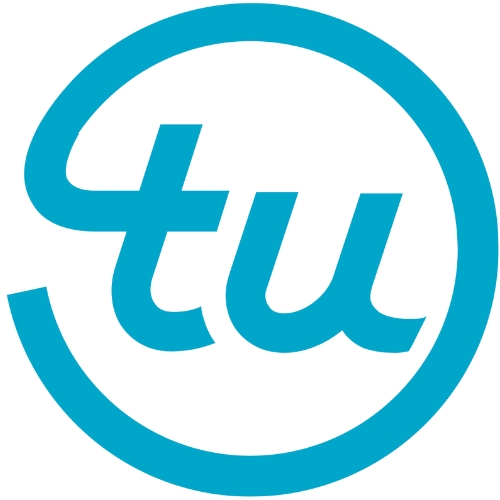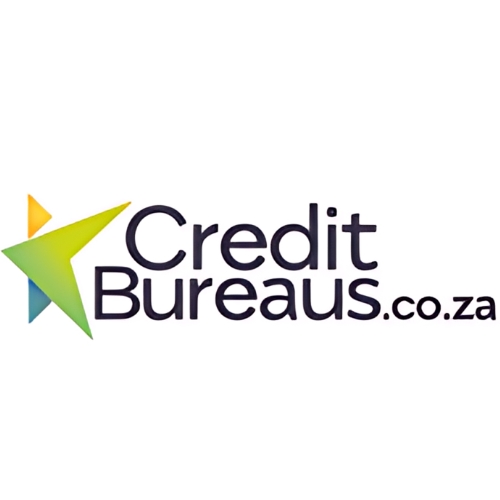
Are you in need of a loan and are currently blacklisted? We offer information on how to attain a loan despite your blacklisted status. What are the means by which individuals become blacklisted as well as where they may review their blacklisted status online? The steps to getting a loan if blacklisted and what are the possible loan options for those seeking an immediate loan?
DISCLAIMER: We do not encourage borrowing if you are blacklisted or have poor credit. It can lead to financial strain, high interest rates, and legal risks.
Key Takeaways
- Understanding Blacklisting: Blacklisting occurs when individuals default on multiple repayments, leading to a poor credit history. Common causes include outstanding debts, legal judgments, loan defaults, and unpaid utility bills.
- Checking Your Status: In South Africa, you can check if you are blacklisted by obtaining your credit report from bureaus like TransUnion or Experian. Verify your identity, request the report (free annually), and review it for negative listings. Dispute any errors to correct your credit report.
- Loan Options and Prevention: Secured loans using collateral are available for blacklisted individuals. To avoid blacklisting, adhere to repayment agreements, avoid missing payments, and consider debt counselling if needed to manage financial difficulties.
What is it to Be Blacklisted?
For those unfamiliar with the term “Blacklisted”. This term is to classify individuals who default on several repayments to credit providers. With any credit provider, they report those who fail to honor their repayments to a credit bureau to such a degree that they are no longer able to qualify for additional credit. The credit bureau informs other credit providers or lenders of your credit rating and overall risk. The result of this is a poor credit history.
Consequentially, credit providers use this to gauge the risk associated with the individual. Your credit rating will also indicate the credit options they offer will offer you. This Term is for individuals who have made more than several faults within their payment history. Additionally, they may be denied any form of credit possibly in the future. Such individuals will have a long road ahead in fixing their credit and raising their credit rating.
Could your overdraft lead to loan rejection? With upcoming changes to credit reporting, overdraft transactions will soon be visible to lenders. Overdraft Data to Be Reported to Credit Bureaus from March 2025 could mean that frequent overdraft use raises red flags on your profile. Learn how to check if you are blacklisted and what to do next.

Typical Causes for Being Blacklisted
Outstanding Debts
Failing to meet financial obligations, such as not making timely payments on credit cards, loans, or other forms of credit, can lead to blacklisting. Creditors report missed payments to credit bureaus, which adversely affects the individual’s credit rating.
Identity Fraud
Victims of identity theft may end up blacklisted due to fraudulent activities under their name. Promptly reporting suspicious activities to relevant authorities is essential to mitigate the long-term effects on creditworthiness.
Loan Defaults
Defaulting on both personal and secured loans is a frequent cause of blacklisting. This indicates to credit bureaus that the borrower cannot meet their financial commitments, negatively affecting their credit history.
Legal Issues and Judgments
Involvement in legal disputes resulting in court judgments or administration orders can contribute to blacklisting. These legal actions, often related to unresolved debts or financial disagreements, can severely impact one’s credit profile and future credit access.
Asset Repossession
Repossession of assets, like vehicles or property, due to non-payment is a serious issue that can lead to blacklisting. This significant failure to meet financial obligations has a severe impact on creditworthiness.
Unpaid Utility Bills
Unsettled bills for services such as electricity, water, or telecommunications can also lead to blacklisting. Non-payment of these essential services reflects poorly on financial responsibility and can result in negative credit report entries.
Non-Compliance with Payment Agreements
If individuals do not adhere to agreed-upon payment plans with creditors or fail to communicate about financial difficulties, it can lead to adverse listings on their credit reports. This lack of transparency damages the creditor-borrower relationship and creditworthiness.
Bankruptcy
Declaring bankruptcy indicates an individual’s inability to repay debts, severely affecting their credit rating. Recovering from bankruptcy and rebuilding credit requires a structured financial plan and commitment to responsible financial management.
How to Determine If You Are Blacklisted in South Africa
In South Africa, you can find out if you are ‘blacklisted’ by obtaining a copy of your credit report from a credit bureau. Here’s how:
Step 1: Contact a Credit Bureau: Request a copy of your credit report from one of South Africa’s major credit bureaus, such as TransUnion, Experian, or Compuscan.
Step 2: Verify Your Identity: To access your credit report, you need to verify your identity by providing necessary information, which might include your ID number or residential address.
Step 3: Request Your Credit Report: You can obtain a free copy of your credit report online or by visiting a credit bureau’s office. Be aware that some bureaus may charge for this service, so check their policies beforehand.
Step 4: Examine Your Credit Report: Once you receive your credit report, review it meticulously for any negative information or ‘flags’ that indicate missed or late payments. This review helps you understand how potential lenders view your creditworthiness.
Step 5: Dispute Any Errors: If you find any inaccuracies in your credit report, you can dispute them with the credit bureau. They are legally required to investigate and correct any discrepancies.
Shortcut: For a quicker method, you can get a free credit report and check it online.
Before applying for any loan, make sure you understand the basics of What Does Being Blacklisted Mean in South Africa? to better prepare yourself and avoid unexpected setbacks.

Your Credit Rating When Blacklisted
Credit providers will always perform a credit check before they offer any form of credit. This risk assessment will establish to lenders whether the individual can repay the loan. Additionally, the amounts, interest rates, and terms are based on your current credit rating. This information is widely available to credit providers through information from credit bureaus. These companies may then make a calculated decision as to your repayment history.
The use of your credit rating when blacklisted is indicated on your repayment history as negative. Those who default numerous times with their payments in the past may be denied loans in the future. Consequentially, this damage to their credit history may take a considerable amount of time to change to be liable for any form of credit.
Those who repay their monthly installments timely each month indicate to credit providers that they are responsible for their finances. As a result, your credit score is a lower risk to lenders. They alternatively will review your potential loan application more favorably.
Those with a credit rating that is reasonably respectable are usually subject to lower interest rates and loan terms. Comparatively, those with a lower rating are more likely to be denied and be subject to higher interest rates. Those who miss or fail to repay their installments on time will negatively affect their credit score.
A poor credit record doesn’t have to be permanent. Explore effective strategies to improve your credit record and boost your chances of getting approved for loans.
Where to Check Your Status When Blacklisted for a Loan?
Credit bureaus keep track of your credit history, including any negative data that indicates missed or late payments, and especially a record of individuals who are blacklisted. Once blacklisted you will lower your chances of future or potential finance options. The process to check your blacklisted status is fairly forward and easily accessible.
Individuals are usually entitled to one free credit report each year. These are numerous online sources that can inform users of their status and additionally their credit rating. Alternatively, other sources to inquire about their status can be done so over the phone. Certain credit bureaus make use of SMS service for those seeking their blacklisted or credit status.
DISCLAIMER: Only take a loan if you can repay it. Prioritize improving your credit score and managing existing debts instead of seeking new credit.
Free Online Sources to Review Your Blacklisted Status

TransUnion
To view your free yearly credit report through Transunion, go to their website. Transunion additionally has an SMS system for those to check their credit status and if they have potentially been blacklisted. Use and dial the following SMS USSD code *120*8801# from your cellphone. Though this service will require users to register and pay a small nominal fee.

Kudough
A free online credit report source to establish your possible blacklisted status. Additionally, Kudough offers its individuals financial advice based on their current financial circumstances as well as blacklisted status.

Experian
For those seeking a user-friendly, simple, and yet accurate means to review their credit or blacklisted status. Experian’s online services namely the “My Credit Check” and “My Credit Expert” portals are an excellent choice.

CreditBureau
For those seeking to cross-check multiple credit reports, CreditBureau makes use of multiple sources. This is the most accurate means for blacklisted individuals to lodge disputes if they note any irregularities in their credit reports. With the use of four of South Africa’s leading credit bureaus, credit reviews are simplified to review to lodge disputes.
About Arcadia Finance
Simplify and expedite your loan experience with Arcadia Finance. Our system allows you to submit a free application and receive loan options from up to 19 lenders. Rest assured, all our lending partners adhere to the regulations of the National Credit Regulator of South Africa.
The Importance of a Credit Report
Those who review their finances through the use of a credit report may find there is a possibility of the data being incorrect. Which consequentially leads to a poor credit score or blacklisting. To check for any errors cross check reports from alternative credit bureaus.
Staying on top of your finances and understanding your credit report to lodge any potential disputes in the event of such an error. Especially, those who are seeking to attain credit may be subject to higher interest rates and terms that are less favorable due to the data being incorrect. Certain jobs will access potential employees’ credit records and may deny those who have been blacklisted.

How Does Being ‘Blacklisted’ Appear on a Credit Report in South Africa?
Being ‘blacklisted’ in South Africa means having a poor credit record, which impacts your financial standing. Here’s how it appears on a credit report:
- Default Listings: Unpaid debts for 90+ days are listed as defaults and remain on the report for up to two years after settlement.
- Judgments: Court judgments for unpaid debts stay on the report for up to five years or until fully paid and rescinded.
- Enforcement Actions: Legal steps like garnishee orders or sequestrations are recorded.
- Debt Review Status: Being under debt review is noted on the report, indicating financial difficulties and involvement of a debt counsellor.
- Credit Enquiries: Multiple credit applications, especially to high-risk lenders, suggest financial distress and over-indebtedness.
- Payment Profiles: A detailed record showing late or missed payments, which negatively affect the credit score.
- Negative Status Codes: Specific codes like ‘in arrears,’ ‘default,’ or ‘handed over’ clearly signal financial difficulties.
How Can You Verify Another Person’s Credit Status in South Africa?
In South Africa, credit reports are confidential, and accessing another individual’s credit information requires their permission. Here’s the usual procedure followed by credit providers:
Obtain Consent
The credit provider obtains consent during the application process, typically through the terms of a loan application.
Consent Forms
Consent forms are used to request a copy of the individual’s credit report from a credit bureau.
Credit Bureau Access
The credit bureau then provides access to the credit report.
This method helps reduce risk and make informed decisions regarding loan approvals, credit extensions, or entering into formal agreements like business partnerships.
» Find out more: What to Do When Your Loan is Declined
Options for Those Blacklisted for a Loan
Regarding a loan, those with a blacklisted status may find it rather difficult to apply for a loan. Traditional credit providers will refuse to offer any form of a credit to those with a poor repayment history. However, it is not entirely impossible to acquire a loan despite being blacklisted. Those who have been blacklisted can make use of a secure loan.
This form of a loan is where the blacklisted individual will use some form of collateral or valued asset to acquire a loan. In the event that users fail to repay the credit provider, they may then repossess the assets to cover any potential loss. Though with this option it is important to note that the interest rate may possibly be lower than that of a traditional loan.
Before applying for such a loan users should review their credit report if there are any errors or potential disputes. An error as such may influence one’s ability to apply for potential loans as well as the interest rate and terms.
Interest rates can make or break your loan application. Learn how the impact of interest rates on loans affects your chances of securing a loan, especially if you are blacklisted.
DISCLAIMER: Borrowing while blacklisted may involve unregulated lenders and predatory practices. Avoid lenders that do not follow financial regulations.

How to Safeguard Yourself from Being Blacklisted
When you can’t meet your monthly payment obligations or worry that you might miss them, considering debt review is a wise move. This strategy can significantly help you manage your financial burdens.
Debt review, also known as debt counselling, is a sanctioned debt relief solution in South Africa. Its main goal is to support South Africans who are overwhelmed by debt and struggling to keep up with their monthly repayments.
The process begins with an assessment to determine if you are over-indebted. This evaluation considers your income and expenditures. From there, a reduced and manageable repayment plan is crafted to help you settle your debts effectively.
Conclusion
Being blacklisted can significantly impact your ability to secure loans and manage financial obligations. However, understanding the causes, regularly checking your credit status, and knowing your options for loans, even if blacklisted, can help mitigate these challenges.
By obtaining your credit report, addressing any inaccuracies, and considering secured loans, you can navigate the difficulties of being blacklisted. Additionally, adhering to repayment agreements and seeking debt counselling if necessary can help maintain or improve your credit standing. This, in turn, provides a path to better financial health and access to credit in the future.
Frequently Asked Questions
Yes, you can check if you are blacklisted by obtaining a copy of your credit report from a credit bureau. In South Africa, you are entitled to one free credit report annually from major bureaus like TransUnion, Experian, or Compuscan.
To check if your name has been blacklisted, request your credit report from a credit bureau. Verify your identity, request the report online or in person, and review it for any negative listings or defaults. This process helps you understand your current credit status and identify any blacklisting.
Clearing your name from being blacklisted involves repaying outstanding debts, adhering to agreed payment plans, and disputing any inaccuracies on your credit report. Over time, consistent, on-time payments will improve your credit score. Additionally, seeking help from a debt counsellor can provide structured plans to manage and repay your debts effectively.
Being blacklisted can significantly limit your access to credit, making it challenging to secure loans, credit cards, or even certain jobs. It typically results in higher interest rates and less favourable loan terms if credit is granted.
Yes, a debt counsellor can assist in managing and reducing your debt through a structured repayment plan. They can negotiate with creditors on your behalf and help improve your financial situation, making it possible to eventually clear your blacklisted status.



